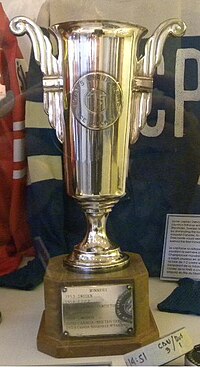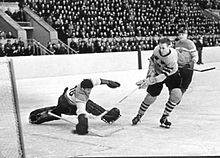The men's ice hockey tournament at the 1960 Winter Olympics in Squaw Valley, United States, was the ninth Olympic Championship, also serving as the 27th World Championships and the 38th European Championships. The United States won its first Olympic gold medal and second World Championship. Canada, represented for the second time by the Kitchener-Waterloo Dutchmen, won the silver and Canada's ninth consecutive Olympic ice hockey medal. The Soviet Union won the bronze medal and its sixth European Championship. The tournament was held at the Blyth Arena, under the supervision of George Dudley on behalf of the International Ice Hockey Federation.

The men's ice hockey tournament at the 1956 Winter Olympics in Cortina d'Ampezzo, Italy, was the eighth Olympic Championship, also serving as the 23rd World Championships and the 34th European Championships. The tournament was held at the Olympic Ice Stadium and the Apollonio Stadium.
The men's ice hockey tournament at the 1964 Winter Olympics in Innsbruck, Austria, was the tenth Olympic Championship, also serving as the 31st World Championships and the 42nd European Championships. The games were held at the Olympiahalle Innsbruck.

The men's ice hockey tournament at the 1972 Winter Olympics in Sapporo, Japan, was the 12th Olympic Championship. Games were held at the Makomanai Ice Arena and at the Tsukisamu Indoor Skating Rink. The Soviet Union won its fourth gold medal. The United States won the silver, while Czechoslovakia won the bronze. Canada did not send a team to the event for the first time since ice hockey was first competed at the Olympics in 1920, instead competing with and defeating the Soviets in a competition later that year known as the Summit Series. Canada would not send a men's hockey team to the Olympics until 1980.
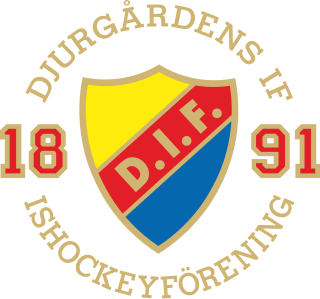
Djurgårdens IF Ishockeyförening, commonly known as Djurgårdens IF, Djurgården Hockey, Djurgården, is a professional ice hockey team based in Stockholm, Sweden, affiliated with the Djurgårdens IF umbrella organization. Djurgården compete in the Swedish second-tier ice hockey league, the HockeyAllsvenskan. The men's team is the most successful Swedish ice hockey team of all time, as 16-time Swedish champions, 12-time runners-up, 26-time finalists, and leaders of the marathon table for the top flight of Swedish hockey. The ice hockey section was first established in 1922 and has since been playing in the Swedish league system, with the exception of four years in the 1930s when the hockey section was temporarily dissolved.

The 1976 Canada Cup was an international ice hockey tournament held September 2 to 15, 1976, in Ottawa, Toronto, Montreal, Winnipeg and Quebec City in Canada as well as in Philadelphia, in the United States. It was the first of five Canada Cup tournaments held between 1976 and 1991, organized by Alan Eagleson, and sanctioned by the International Ice Hockey Federation (IIHF), Hockey Canada and the National Hockey League (NHL).

Ulf Ivar Erik Sterner is a Swedish former professional ice hockey forward. He played in nine IIHF World Championships for Sweden, where the team won seven medals: one gold, five silver, and one bronze. He was also a member of the silver medal team at the 1964 Winter Olympics. Sterner played for Forshaga IF from 1956–61, Västra Frölunda IF from 1961–64, and for the New York Rangers in 1964–65, before returning to Sweden to play for Rögle BK and Färjestads BK. He finished his career in England with the London Lions in 1973–74. On 27 January 1965, he became the first European-trained player to play in the National Hockey League (NHL). He was inducted into the IIHF Hall of Fame in 2001.

Sven Tumba was one of the most prominent Swedish ice hockey players of the 1950s and 1960s. He also represented Sweden in football as well as golf and became Swedish champion in waterskiing.
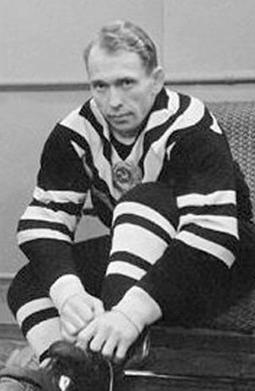
Nikolai Mikhailovich Sologubov was a Russian ice hockey defenceman who won a gold and a bronze medal with Soviet teams at the 1956 and 1960 Olympics, respectively. He was inducted into the IIHF Hall of Fame in 2004.

The 1985 Ice Hockey World Championships took place in Prague, Czechoslovakia from 17 April to 3 May. Eight teams took part, with each team playing each other once. The four best teams then played each other once more with no results carrying over, and the other four teams played each other again to determine ranking and relegation. This was the 50th World Championships, and also the 61st European Championships of ice hockey. The home side, Czechoslovakia, became world champions for the 6th time, and the Soviet Union won their 23rd European title. For the European Championship, only games between European sides in the first round are included.
The 1978 Ice Hockey World Championships took place in Prague, Czechoslovakia from 26 April to 14 May. Eight teams took part, with each team playing each other once in the first round, and then the four best teams meeting in a new round. This was the 45th World Championships, and also the 56th European Championships. The USSR won for the 15th time, narrowly defeating the incumbent Czechoslovaks.
The 1976 Ice Hockey World Championships were the 43rd Ice Hockey World Championships and the 54th European Championships in ice hockey. The tournament took place in Poland from 8 to 25 April, and the games were played in Katowice. Eight teams took part in the main tournament, with each team first playing each other once. The four best teams then took part in a medal play off, and the teams placed 5–8 took part in a relegation play-off. The teams took the results from the first round through to the second round with them.
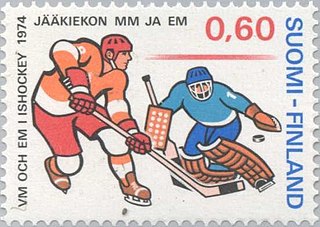
The 1974 Ice Hockey World Championships were the 41st Ice Hockey World Championships and the 52nd European Championships in ice hockey. The tournament took place in Finland from 5 to 20 April and the games were played in the capital, Helsinki. Six teams took part in the main tournament, all playing each other twice. The Soviet Union won the world championships for the 13th time, and also won their 16th European title.

The 1954 Ice Hockey World Championships, were the 21st World Championships and 32nd European ice hockey championships were held from 26 February to 7 March 1954 in Stockholm, Sweden. Every team played each other once with the top three finishers receiving medals at the end. The USSR won in its first attempt, led by Vsevolod Bobrov who was recognized as the best forward of the tournament in the first ever presentation of Directorate Awards.
The 1970 Ice Hockey World Championships was the 37th edition of the Ice Hockey World Championships. 21 nations participated in three different divisions or pools:
The 1969 Ice Hockey World Championships was the 36th edition of the Ice Hockey World Championships, which also doubled as the 47th European ice hockey championships. For the first time the Pool A, B and C tournaments were hosted by different nations:
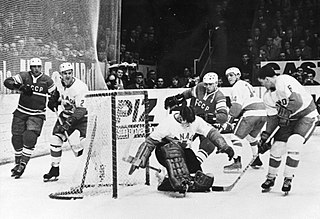
The 1967 Ice Hockey World Championships was the 34th edition of the Ice Hockey World Championships. The tournament was held in Vienna, Austria from March 18 to March 29, 1967. The Soviet Union won the tournament for the fifth straight year, Sweden won the silver medal, and Canada claimed the bronze medal.
The 1963 Ice Hockey World Championships was the 30th edition of the Ice Hockey World Championships. The tournament was held in Stockholm, Sweden from March 7 to March 17, 1963. The Soviet Union won the tournament for the third time, starting their roll of nine straight championships. For the Soviets it was also their seventh European title.
The 1962 Ice Hockey World Championships was the 29th edition of the Ice Hockey World Championships. The tournament was held in Colorado Springs and Denver, United States from March 8 to March 18, 1962. This was the first World Championship hosted in North America that was not part of ice hockey at the Olympic Games. It also remains the only IIHF World Championship ever held in the United States.
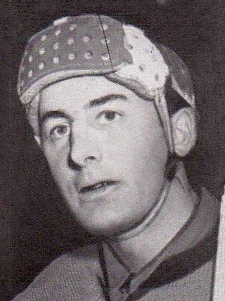
Gösta Rudolf Torsten "Lill-Lulle" Johansson was a Swedish ice hockey player and son of Gustaf ”Lulle” Johansson.
